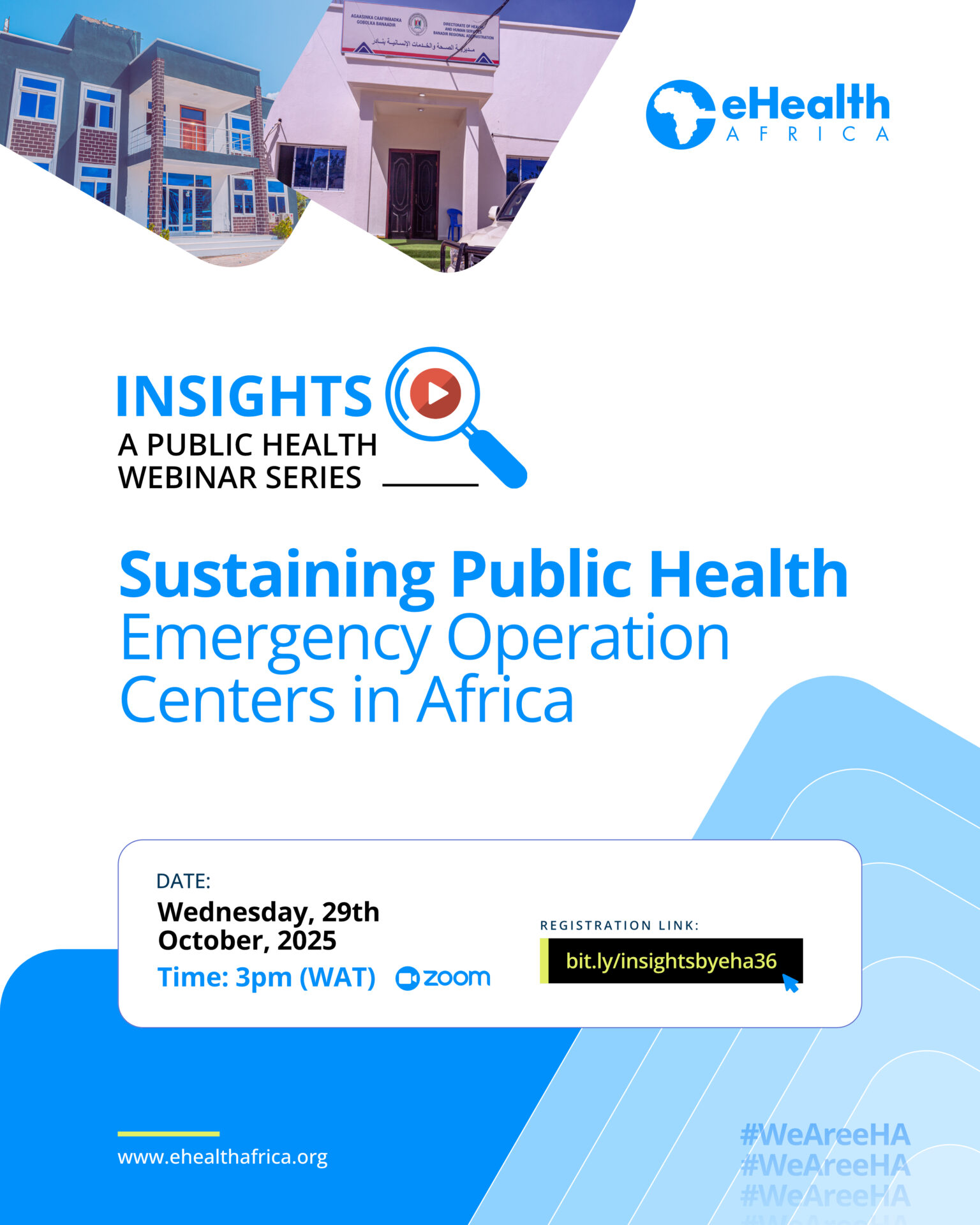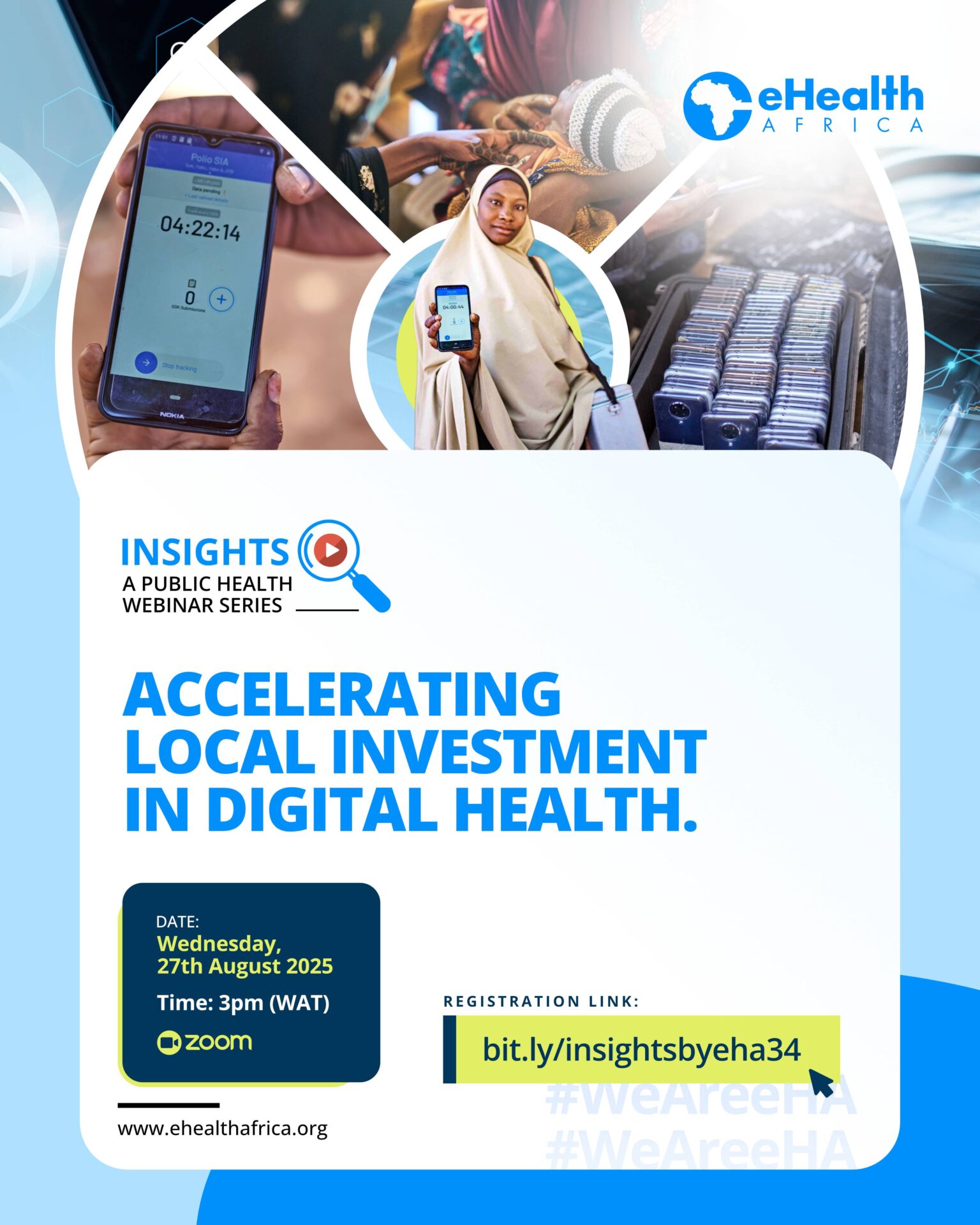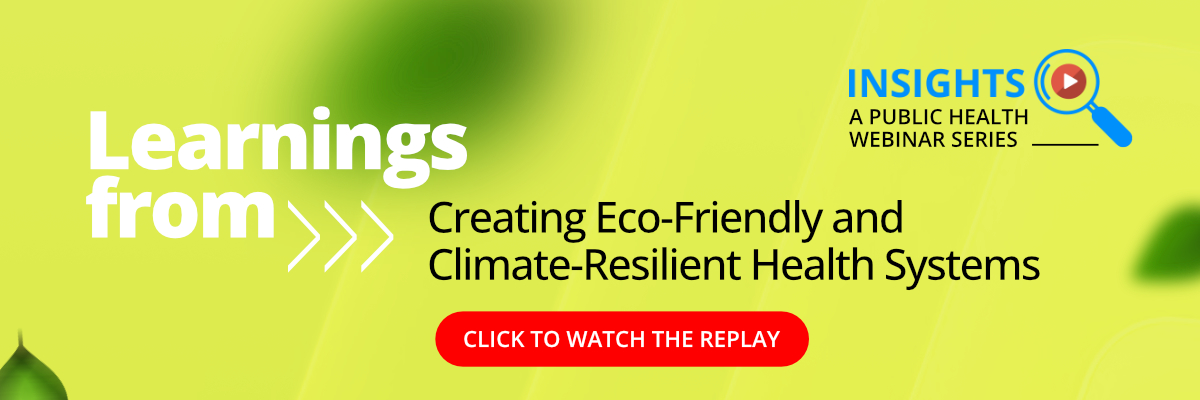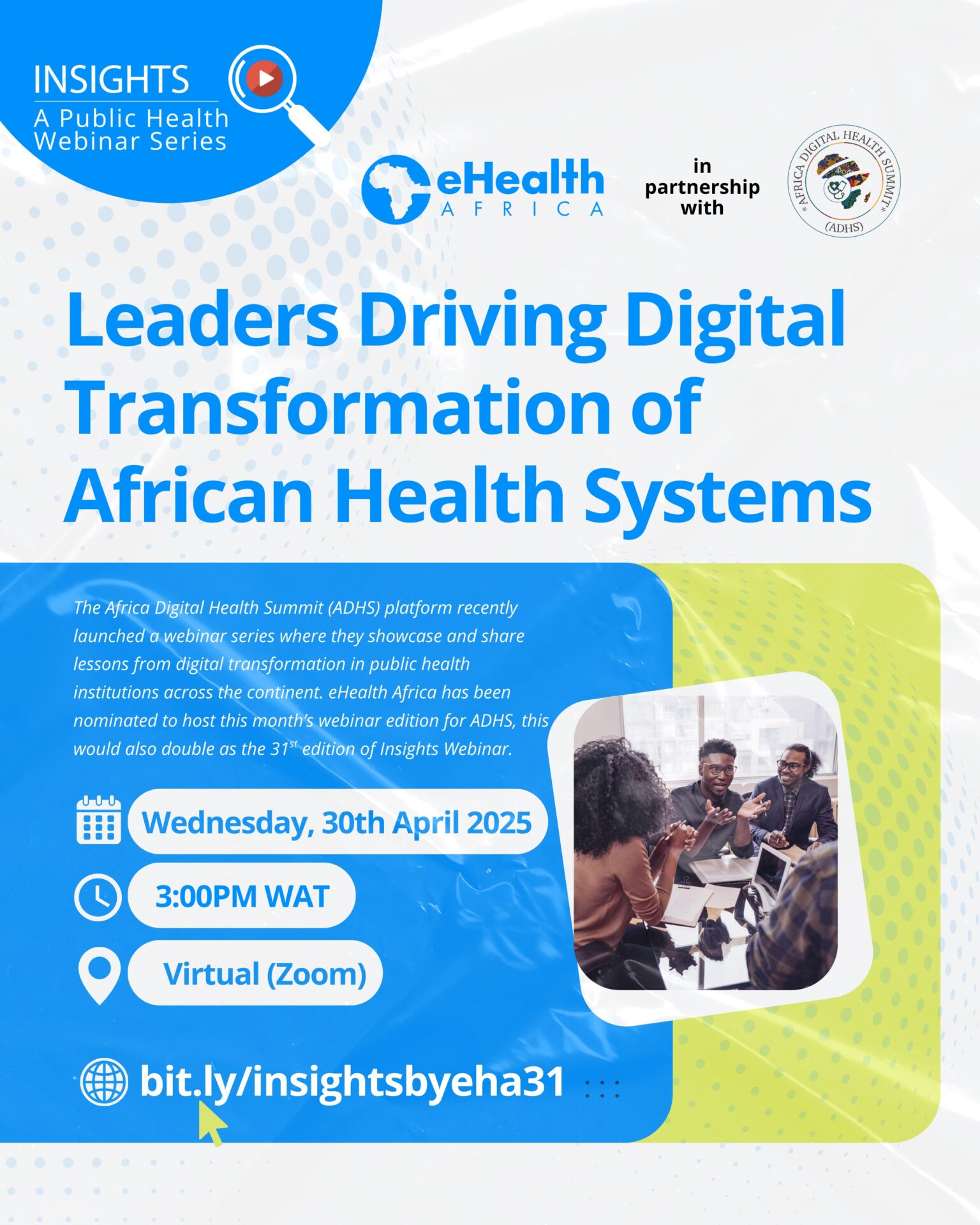Events
Insights : Sustaining Public Health Emergency Operation Centers in Africa


Moderator:
Tijesu Ojumu – Communications Coordinator, eHealth Africa
Panelists;
- Kazeem Balogun – Deputy Director, Supply Chain Management, eHealth Africa
- Onochie Mokwunye – Monitoring, Evaluation and Learning Specialist, Cloneshouse
- Princess Lynettie Kayeye – GPEI Coordinator-Zambia, Ministry of Health
Summary
The 36th episode of the Insights Webinar Series, hosted by eHealth Africa (eHA), explored a vital theme in public health resilience; “Sustaining Public Health Emergency Operation Centers (PHEOCs) in Africa.” The discussion examined how PHEOCs have evolved from coordinating polio eradication efforts to serving as command hubs for broader disease surveillance, response, and health system strengthening across the continent.
Opening the session, Kazeem Balogun traced the origins of Nigeria’s first Emergency Operations Center (EOC) to 2012, explaining that it was born out of the need for a centralized, data-driven, and coordinated response to outbreaks. “Before the EOCs, outbreak responses were fragmented and slow,” he said. “The EOC model changed that bringing all partners, data, and decision-makers under one roof.” He highlighted that this approach was pivotal to Nigeria’s wild poliovirus-free certification and has since become integral to managing other outbreaks such as Ebola and COVID-19.
From Zambia, Princess Lynettie Kayeye shared her country’s experience, emphasizing the role of strong government leadership, multi-sectoral coordination, and community engagement in sustaining PHEOCs. “When there’s no government commitment, programs struggle,” she noted, adding that Zambia’s decentralized EOCs have improved preparedness, rapid response, and data sharing at national and subnational levels. She also stressed that capacity building and local empowerment have ensured that skills gained during polio response are now being applied to other public health priorities.
Speaking from an evaluation perspective, Onochie Mokwunye discussed insights from multi-country assessments of PHEOCs across Africa. He noted that the centers have strengthened integrated surveillance, data culture, and evidence-based decision-making, while also producing a trained workforce that supported Nigeria’s COVID-19 response. “PHEOCs help countries move from reactive outbreak management to proactive preparedness,” he said, underscoring the need for interoperable data systems, sustainable domestic financing, and continuous workforce development.
Panelists collectively emphasized that sustaining PHEOCs requires government ownership, renewable energy integration, digital innovation, and public–private partnerships to bridge infrastructure gaps, particularly at subnational levels. They also called for greater data interoperability across ministries and borders, and for policy reforms that institutionalize PHEOCs within national health frameworks.
Closing the session, Princess Kayeye reaffirmed that EOCs have become game changers for public health coordination across Africa, while Kazeem Balogun stressed that “EOC models are a worthy investment in global health security.” The conversation ended with a unified call for sustainability, local ownership, and resilience, ensuring that Africa’s PHEOCs remain functional, innovative, and ready for the next health emergency.







